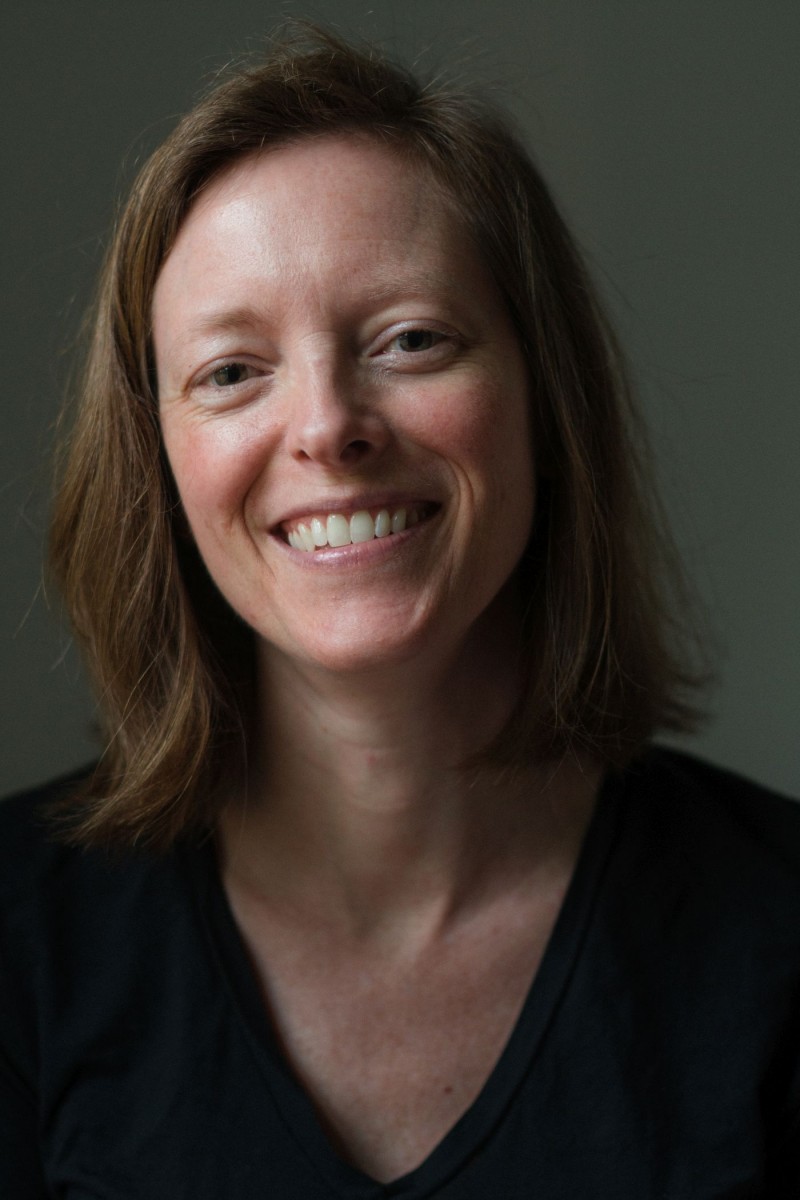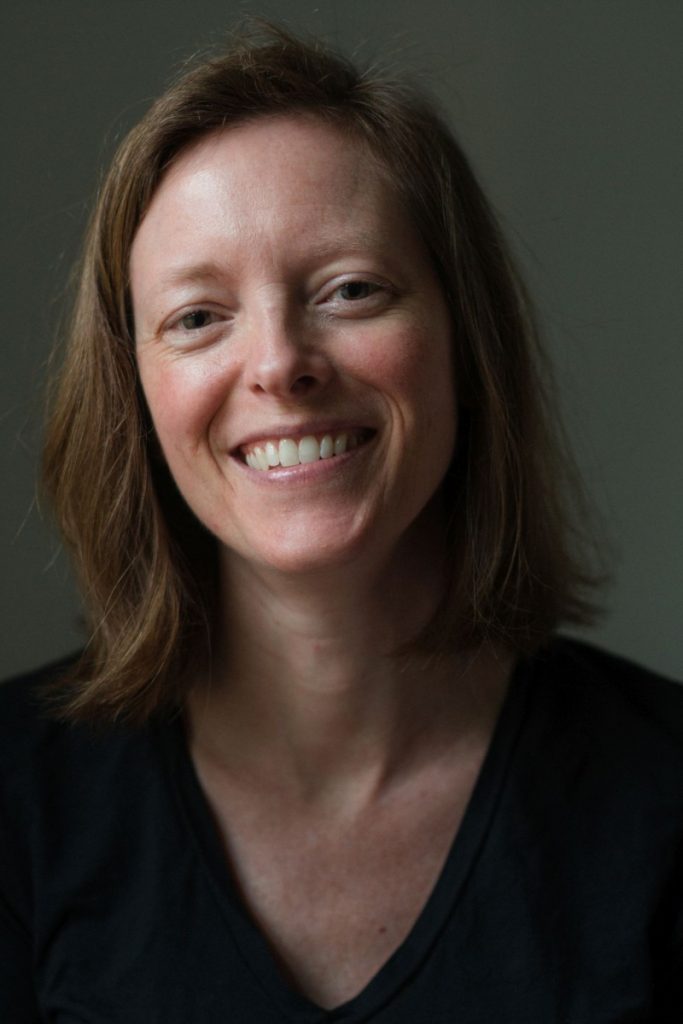 In each issue of Keynotes, we profile a staff member who works in the library or other related department. This issue features Reserves Coordinator Kellam Ayres. Kellam is also an alum of, and now library liaison to, the Bread Loaf School of English (BLSE). Here, she talks about her role as liaison and her experiences with Bread Loaf.
In each issue of Keynotes, we profile a staff member who works in the library or other related department. This issue features Reserves Coordinator Kellam Ayres. Kellam is also an alum of, and now library liaison to, the Bread Loaf School of English (BLSE). Here, she talks about her role as liaison and her experiences with Bread Loaf.
What type of work does your position as BLSE liaison entail?
My role as liaison are specific duties, such as providing library orientation sessions, staffing the research desk at Davison, and creating the LibGuide for BLSE, that are similar to the services that liaisons to the undergraduate departments provide. I also maintain the permanent collection at Davison, which consists of English and American Literature and related materials. My role as reserves coordinator means that I’m in close contact with Bread Loaf faculty about the materials they need for teaching and student research. In general, I’m an advocate for Bread Loaf – if my colleagues are discussing a new database, or new citation tools, or a change to library workflows and services, I think “how will this affect Bread Loaf?” or “let’s offer this new service at Bread Loaf.”
How do the services at the Davis and Armstrong libraries overlap or interact with Bread Loaf’s Davison library?
We really aim to have the services at Davison mirror those at Armstrong and the Davis Family Library as much as possible. Bread Loaf students have access to the same library resources, both print and online, as the rest of the College community. Every summer we supplement the small permanent collection at Davison by moving a mountain of course reserve materials up the mountain, and have them available for borrowing. Also, given the distance between Bread Loaf and the main campus, and the fact that not every Bread Loafer has access to a car, we run a daily courier service from Davis to Bread Loaf. The speedy delivery of library materials to Bread Loaf is one of our most appreciated services. In terms of what Davison has that the other two libraries don’t? A working fireplace with a bust of Robert Frost looking down from the mantel comes to mind!
What are some of the differences between the various Bread Loaf programs?
The Bread Loaf School of English (BLSE), founded in 1920, is a master’s degree program held for six intensive weeks each summer at the Bread Loaf mountain campus in Ripton, as well as at campuses in Santa Fe, New Mexico, and Oxford, England. Students attend for four or five summers in pursuit of an M.A. The Bread Loaf Writers’ Conferences (BLWC) have expanded recently, and now include the Bread Loaf Orion Environmental Writers’ Conference and the Bread Loaf Translators’ Conference (held concurrently in early June) as well as the large Writers’ Conference in August that was first founded in 1926. Students at BLWC are not pursuing a degree, but are attending in order to receive feedback on their poetry, fiction, and nonfiction. The Library provides each Bread Loaf program with a variety of support, including reserves, staffing at Davison Library, and instruction.
Does the BLSE offer public readings, similar to those at the Writers’ Conference, where community members are invited to attend readings by guest poets, poet laureates and writers?
Yes! BLSE has public readings and lectures throughout the summer, featuring both visiting speakers as well as the esteemed faculty. Also, the Acting Ensemble stages a major production at the end of the summer (this year it will be Othello) – the production is ticketed but free and open to the public.
Does the fact that you are a BLSE alum afford you any insight when providing information or guidance to incoming BLSE students?
It’s definitely helpful to have first-hand knowledge about studying at Bread Loaf. I still remember my first few days as a new student – that panicked, overwhelmed, new-kid feeling where I was just trying to make a few friends, figure out how to be a graduate student, and adjust to life on a remote mountain. For many Bread Loaf students it’s their first time back in a classroom in years, sometimes decades. So it’s my goal to make the library as helpful and welcoming as possible, especially to newcomers. I think that the library orientations give students the tools they need to hit the ground running, and serve as a friendly introduction to the library staff and facility.
If you could give advice to an incoming BLSE student, what would it be?
Work hard, ask lots of questions, and make a point to engage with as many of your fellow students as possible – you’ll be hard pressed to find a group of people more passionate about reading, writing, teaching, and learning. Also, spend at least one summer at one of the other Bread Loaf campuses (in Santa Fe and Oxford). And remember, always, that the faculty and staff are there to support you and help you grow.
Did you have a mentor or favorite instructor as a student?
Every single class that I took at Bread Loaf was memorable and influential, but David Huddle was a particularly important mentor and friend. The work that I generated in his poetry writing class became the manuscript that I used when applying to MFA programs. And John Elder and Brett Millier both taught classes that took field trips to Special Collections (John brought us to see the Frost holdings at Davis Family Library, and Brett took us to Amherst College to see the Emily Dickinson collection – both unforgettable!)
Do you have a favorite spot on the BLSE campus?
I have many favorite spots! Sitting on an Adirondack chair on the West Lawn is pretty perfect. For a little more solitude, I’ll pull up a chair near the Tea Cabin. For socializing and sunsets, it’s hard to beat the porches of Treman and Tamarack.
Do the Green Mountains play an important role to inspire creativity at Bread Loaf?
There’s no doubt that the setting is stunningly beautiful and breathtaking – those views really never get old – but I think what’s truly inspiring is the chance for Bread Loaf attendees to step away from their regular lives and fully immerse themselves in their studies, their writing, and to connect with dedicated faculty and talented fellow students.
